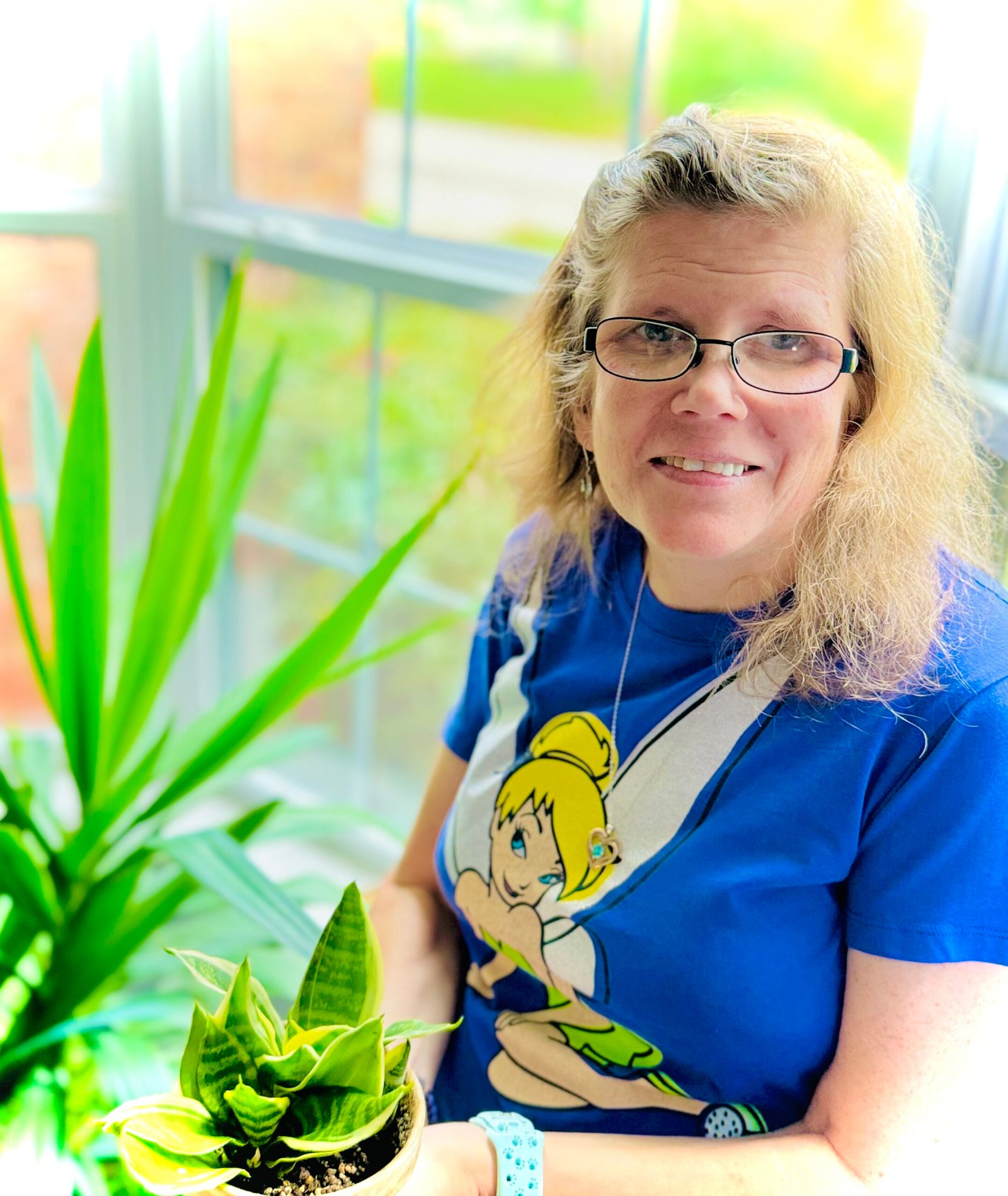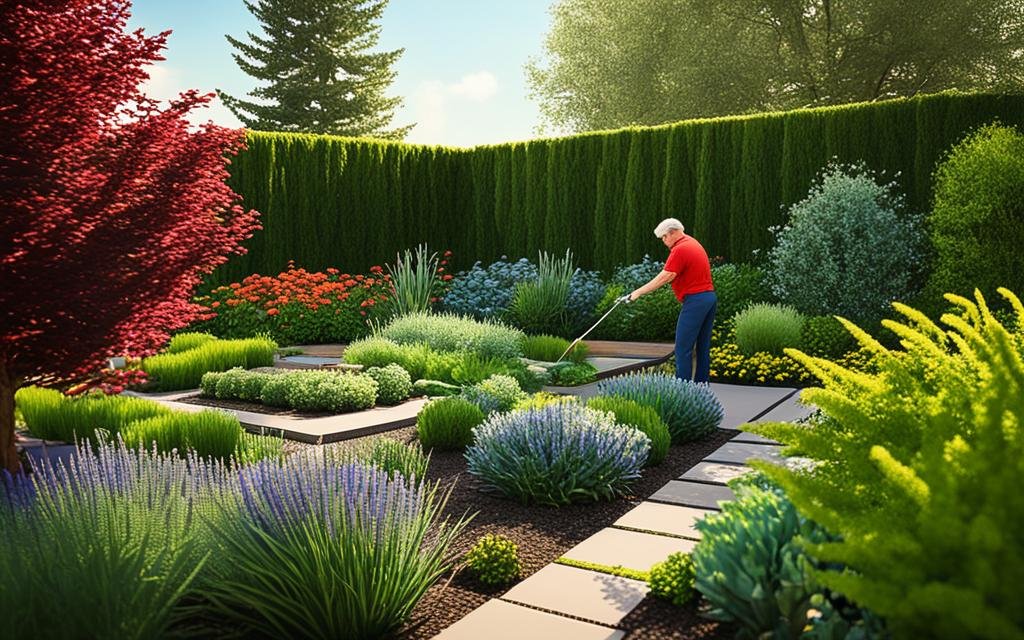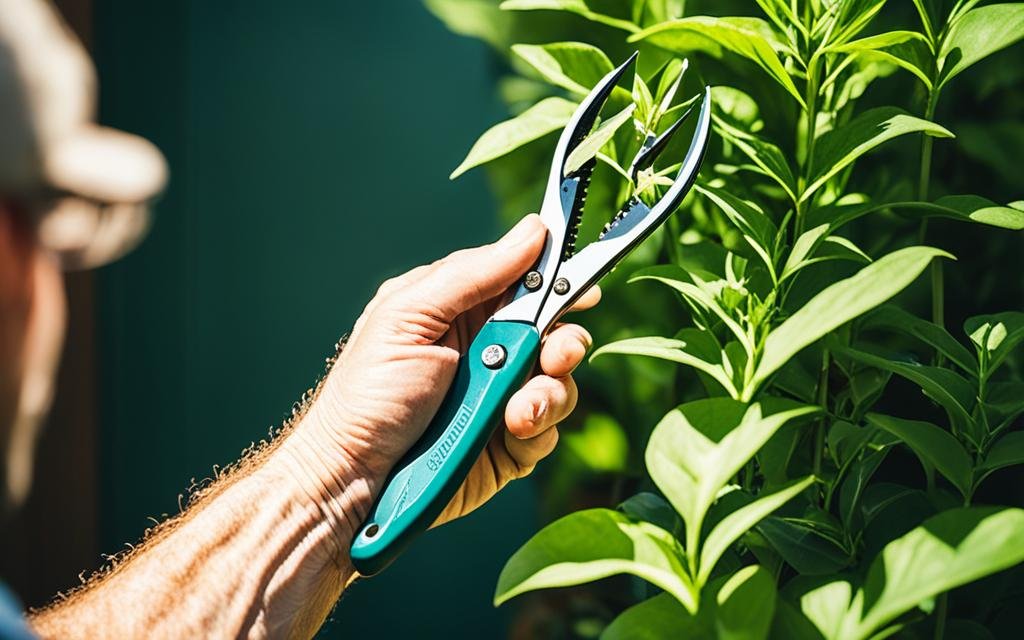Have you ever felt like life’s pressures were too much? I did, and it made finding peace hard. I struggled with anxiety, finding it tough to focus on simple tasks. But then, I found gardening again, and everything changed.
Gardening has deep mental health benefits, and I know this from experience. Pruning plants became a way for me to connect with nature and let go of stress. Studies from Texas A&M AgriLife show that this can really help reduce anxiety and boost mood1.
When I had to stop gardening due to health issues, my mental health took a hit. I couldn’t focus, and my sleep was poor. But when I started gardening again, I saw big improvements, both physically and mentally. Studies back this up, showing that gardening can boost cognitive skills and ease emotional stress2.
Key Takeaways
- Gardening provides a therapeutic outlet for reducing stress and anxiety.
- Regular interaction with plants can enhance cognitive function and focus.
- Hands-on activities like pruning offer a sense of control and emotional release.
- Gardening promotes a mindful presence, essential for mental well-being.
- Reconnecting with nature fosters life satisfaction and overall happiness.
The Psychological Benefits of Gardening
Gardening is more than a hobby; it’s key to better mental health. Activities like pruning and shaping plants bring many benefits. These include lowering anxiety, making us happier, and improving our lives. Studies show that gardening can help with anxiety and depression by making us feel calm and fulfilled.
Reducing Anxiety and Depression
Being in nature helps reduce stress and boost mental health. In Britain, most people find gardening good for their mental health3. But, not having enough green spaces in cities can make people more stressed and unhappy4. Having a garden or joining a community garden can help. It connects us with nature and brings many benefits for our mental health.
Enhancing Memory and Focus
Gardening does more than relax us; it also improves our minds. Regular plant care helps us remember things better and stay focused. Being around green spaces makes us more creative and productive4. Gardening daily can even lower the risk of dementia by 36%, showing its value for our brains as we get older3.
This boost in focus comes from the mindful attention and physical activity in gardening. It makes our brains work better and clears our minds.
Boosting Happiness and Life Satisfaction
Gardening brings great joy and satisfaction. Regular plant care makes us happier and more satisfied with life. For example, just ten minutes a week in the garden can lower heart disease risk and improve health3. Growing an indoor garden can also be calming and fulfilling, making us feel accomplished and happy4.
These activities make us feel connected and well, making gardening key for our mental health.
Mindfulness and Gardening: Cultivating a Healthy Mind
Gardening helps us focus on the present moment. It’s a way to escape the stress of too much screen time. Tasks like planting or weeding require our full attention, bringing peace.
Being Present in the Moment
Gardening makes us live in the now. It helps us forget worries and distractions. Studies show it lowers stress hormones, making us feel better5.
Being outside and with nature boosts serotonin and dopamine. These are key for feeling good6.
Reducing Screen Time and Technology Distractions
Gardening is a break from screens and digital stress. It cuts down on tech time and stress. Activities like shoveling or mowing are good for both body and mind6.
It also keeps hands strong and agile, especially for older people5.
Gardening is great for mental health. It reduces stress and helps us think clearly. The hands-on nature of gardening is key to feeling emotionally well.
Therapeutic Benefits of Pruning and Shaping Plants
Pruning and shaping plants bring many benefits to mental health. They make gardens healthier and look better. They also help our minds a lot.
Serotonin Release from Soil Interaction
Touching soil is key in gardening. It makes our brains release serotonin, like nature’s happy pill. Studies show gardening lowers depression and anxiety. It makes life better and more fulfilling7. This happens when we touch soil bacteria, Mycobacterium vaccae.
Dopamine Release from Harvesting
Picking plants and fruits makes us feel good by releasing dopamine. This is like our ancestors feeling happy after finding food. Gardening is cheap but powerful for our mental health7. It also makes our homes look nice and helps us feel better8.
Hands-on Connection with Nature
Gardening connects us closely with nature. It reduces stress and makes us feel better. By shaping and pruning, we relax and refresh our minds. For example, plants like the Ficus Lyrata are great for air quality and look good, making gardening even more rewarding9.
Gardening with pruning and shaping plants has many benefits. It’s a natural way to improve mental health. It helps us live a peaceful, whole life.
Pruning and Shaping Plants: Improving Mental Health
Pruning and shaping plants is more than just keeping them looking good. It’s a way to take care of yourself and boost your mental health. When I prune, I feel stress melt away as I focus on the task and live in the moment.
Pruning helps plants grow strong by cutting old branches. This makes them put more energy into new growth and more flowers and fruits10. It’s good for the garden and helps the gardener feel better. Pruning lets me think about my progress and set new goals, which is like improving myself.
Pruning plants also has big mental health perks. Techniques like Low-Stress Training and Screen of Green make plants grow better and stay healthy11. Seeing my plants do well makes me feel proud and boosts my self-esteem.
Pruning makes gardens look better, which makes plants healthier and more beautiful10. This makes me feel proud and happy with my garden, which makes me happier overall.
Bonsai is great for mental health too. It helps build confidence, patience, and lowers stress12. Pruning bonsai trees helps me focus and be mindful, which are key for mental health12. It lets me connect deeply with my plants and offers a break from daily stress, improving my mental health.
In the end, taking care of plants through pruning and shaping does more than help them grow. It also makes us feel better mentally. These activities show us we can improve and bounce back, making gardening a full health boost for our minds and bodies.
Case Studies: Real-Life Experiences with Gardening Therapy
Gardening therapy is changing lives by boosting mental health. It involves activities like planting and harvesting. These activities have shown big improvements in mental well-being.
Stories from Horticultural Therapy Programs
A study found 22 patients after strokes got better through gardening therapy. They did things like plant herbs and prune trees for 60 minutes, twice a month. This helped their mental health a lot13.
From interviews and diaries, five main themes came up. These included feeling good in nature, expressing oneself through gardening, and feeling more confident13.
Personal Accounts of Mental Health Improvements
People say gardening has made them happier and helped with depression. It also made them remember things better14. A hospital in North Italy saw patients gain more self-esteem and feel better after gardening13.
These stories show how gardening therapy can really help with mental health.
Gardening Activities for Mental Health
Gardening is great for your mental health. Simple tasks like weeding and watering can help reduce stress and make you feel relaxed. The American Horticultural Therapy Association (AHTA) says horticultural therapy helps improve both physical and mental health. It’s used in places like hospitals and mental health centers15.
Herbs like mint and lemon balm are good for stress relief. Mint is great for cooking and making tea15.
Gardening makes you more mindful by using all your senses, especially in sensory gardens16. During the pandemic, more people started gardening and enjoying nature15. It helps you feel connected to nature and reduces stress.
Phyllis D’Amico, a horticultural therapist, says working with plants helps with stress and mental health15. Horticulture therapy uses sensory gardens and growing different plants. It helps with mental wellness.
Using Ted Lare’s gardening supplies makes gardening easy. They offer online shopping and a cell phone service for orders. You can even pick up your order or have it delivered16. They also have special deals like 20% off gift cards and free delivery for big orders in Des Moines16. Gardening is a great way to improve your mental and physical health.
Simple Steps to Start Your Own Gardening Therapy
Starting your own gardening therapy is easy with simple steps. These steps are made for everyone, no matter your skills or needs. By following these steps, you can start your journey to better health, both in body and mind. Let’s look at the key steps to begin your gardening therapy.
Choosing the Right Plants
Choosing the right plants is the first step in starting your gardening therapy. Pick plants that do well in your area and match your gardening level. For beginners, plants like tomatoes, basil, and marigolds are great. They are easy to care for and keep pests away. Having different plants also makes your garden more interesting and helps with therapy.
Basic Pruning Techniques
Learning how to prune is key for a healthy and beautiful garden. Pruning removes dead or sick branches and helps plants grow better. It also makes more flowers and fruits grow. To start gardening therapy, learn when and how to prune different plants. For example, pruning roses often makes them bloom more. Trimming herbs like basil and mint keeps them from getting woody and encourages more growth.
Creating a Pruning Schedule
Having a regular pruning schedule is important for gardening therapy. It helps you stay committed and patient, which are important for therapy. A good schedule makes sure you prune at the best time, keeping plants healthy and productive. For example, prune fruit trees in winter and perennials in early spring. Adding these tasks to your calendar makes gardening a positive and structured activity.
Experts like Dr. William Bird think gardening should be a way to prevent dementia17. Studies also show that gardening can help with mood, depression, anxiety, and stress by increasing serotonin levels18.
Conclusion
Gardening, especially pruning and shaping plants, has a strong link to mental health. Studies and personal stories show its benefits. It’s a way to improve mental well-being for many people.
Pruning helps plants grow by cutting off old parts and making room for new growth19. Indoor plants can clean the air, removing up to 87% of harmful substances20. Being around plants can make you feel less stressed and happier20.
Some plants, like the Snake Plant, are great for lowering stress and anxiety20.
Gardening does more than just beautify your space; it also helps your mind. It brings together mental clarity and physical activity. By picking the right plants and pruning them, you can make gardening a regular way to relax.
Whether you have plants inside or a garden outside, the benefits are clear. Start enjoying the healing power of gardening today. See how it can change your mental health and overall well-being.

My name is Michelle Warren, and I’m the founder of Peaceful Gardening. As a 10-year breast cancer survivor, I’ve discovered the profound therapeutic power of gardening. This journey has not only helped me recover but has also become my passion and a source of ongoing peace and joy.
Peaceful Gardening was born from my desire to share the healing benefits of gardening with others. Whether you’re facing health challenges, dealing with stress, or simply looking to connect more deeply with nature, this space is for you.
Over the past decade, I’ve cultivated not just plants, but a deep understanding of how gardening can positively impact mental health. I’ve worked with local community gardens, led workshops on mindful gardening practices, and collaborated with mental health professionals to develop gardening-based stress reduction programs.
Peaceful Gardening was born from my desire to share the healing benefits of gardening with others. Whether you’re facing health challenges, dealing with stress, or simply looking to connect more deeply with nature, this space is for you.
Here, you’ll find evidence-based advice on using gardening as a tool for mindfulness, stress relief, and emotional healing. I share personal stories, practical tips, and scientifically-backed information on how to create your own therapeutic garden space, no matter the size of your yard or balcony.
My mission is to help you discover the joy, peace, and healing that comes from nurturing plants and connecting with nature. Join me in exploring how the simple act of tending to a garden can transform your mental and emotional wellbeing.
Welcome to Peaceful Gardening – let’s grow together towards better mental health!”




